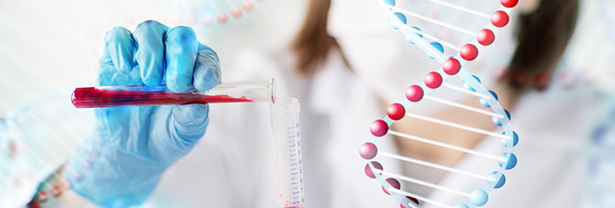Quality
Quality
The objectives have been achieved by selection of proper equipment’s, high quality reagents, strict internal and external quality assessment and control backed up by well qualified and dedicated professionals. As a consequence now Immuno Diagnostics Pvt. Ltd is accepted as one of the leading laboratories in the northern India.
We are very glad that more than 5000 labs and hospitals in Northern India use our services. It serves over 12 lakh customers every year. Constant up-gradation and introduction of new tests and methods to meet the demands of the clinicians has been one of our major aims.


Quality Management
Immuno Diagnostics Pvt. Ltd core quality principle is the continuous improvement of all processes and services supporting the care of patients. The Quality Management System allows us to deliver consistent, cost-effective and superior service to our clients. The policies, processes and procedures associated with these Quality System Essentials (QSEs) are applied to all operations in the path of workflow (e.g., pre-analytic, analytic and post-analytic). Quality management focuses on continuous quality improvement as measured by customer satisfaction.
Operating within a Quality System allows us to meet and exceed the requirements of regulatory/accreditation agencies and facilitates service satisfaction for our customers. We have defined processes for planning and evaluating the effectiveness and efficiency of our Quality System through scheduled internal audits, quality performance monitoring, and leadership reviews.
Quality Indicators
Immuno Diagnostics produces hundreds of Key Performance Indicators for our business and operational areas, and we review them regularly to ensure that we continue to maintain our high standards. A sampling of these metrics includes:
Pre-analytic performance indicators
- Incoming defects*
- Lost specimens*
- ImmunoTM Compliance
- On-time delivery
- Specimen identification* – Analytic performance indicators
- Proficiency testing
- Test reliability
- Turnaround (analytic) times
- Quantity-not-sufficient (QNS) specimens* – Post-analytic performance indicators
- Revised reports*
- Total Critical Results Notification reports* – Operational performance indicators
- Incoming call resolution
- Incoming call abandon rate
- Call completion rate
- Call in-queue monitoring


Critical Values / Critical Results
A team of laboratory directors and Technicians, determines the critical values for analytical tests. These decision limits are built into our Laboratory Information System (LIS). Our call center is notified of possible critical values 24 hours a day, seven days a week by representatives in our performing laboratories in compliance. Clients will be required to provide contact information to us to facilitate accurate and timely notification of critical values/critical results.
Test Standardization
The Immuno Diagnostics Standardization Group (IDSG) is a department-wide, multisite initiative focusing on standardizing platforms, assays, procedures and controls across all testing sites. The goal of these activities is to assure the same results are obtained at all testing sites. The group actively identifies the best method for each test and standardizes processes across testing sites to ensure high-quality and consistent results, regardless of testing location.


Test Development Process
Immuno Diagnostics Pvt. Ltd. is dedicated to providing clinically useful, cost-effective testing strategies for patient care. Development, validation and implementation of new and improved laboratory methods are major components of that commitment. We have launched a standardized test life cycle process (TLCP) which includes seven specific phases of the test life cycle process (test design, development, verification, validation, launch, maintenance and test retirement).
This process positively streamlines all development operations and activities and aligns with ISO15189 Standard. Assays utilized at Immuno Diagnostics Pvt. Ltd, undergo a verification, validation and performance documentation period before the test becomes available for clinical use, including:
- Accuracy
- Precision
- Sensitivity
- Specificity and interferences
- Reportable range
- Linearity
- Specimen stability
- Specimen type comparisons
- Urine preservative stability studies
- Comparative evaluation
- Reference values*
- Workload recording
- Limitations of the assay
- Clinical utility and interpretation
Where appropriate, analytical test listings contain a statement regarding these classifications, test development and performance characteristics.



